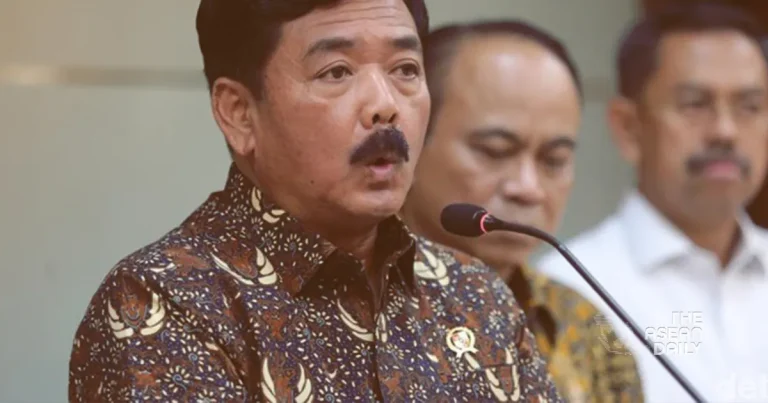24-9-2024 (JAKARTA) Indonesian President Joko Widodo and President-elect Prabowo Subianto have given the green light for the establishment of a groundbreaking Cyber Force, set to become the fourth branch of the Indonesian Military (TNI). This strategic move aims to bolster the nation’s capacity to “respond effectively to cyber attacks from abroad”, marking a significant shift in Indonesia’s defence paradigm.
The newly approved cyber military unit is poised to operate in tandem with the existing Indonesian Army, Navy, and Air Force. Sources close to the matter indicate that the development of this force is expected to be a top priority for Mr Prabowo’s incoming administration.
Coordinating Minister for Political, Legal, and Security Affairs, Hadi Tjahjanto, shed light on the initiative following a parliamentary session in Jakarta on Monday. He emphasised the critical nature of cyber defence in the face of evolving global threats.
“In the landscape of modern warfare, cyber conflict has emerged as a pivotal battleground. It demands sophisticated strategies to counter proxy wars, asymmetric conflicts, and propaganda offensives,” Mr Hadi explained to journalists, underscoring the imperative for a specialised military unit dedicated to addressing cyber threats.
The decision comes in the wake of a severe cyber attack that struck Indonesian government offices in June, described as the most devastating in recent years. The breach disrupted immigration services and affected airport operations for several days, targeting over 40 government bodies and key ministries.
Mr Hadi outlined the broad remit of the new cyber branch, stating, “This unit will be tasked with psychological operations, aimed at influencing mindsets to ensure our success in this new form of warfare.” He added that the force is expected to conduct daily cyber patrols and implement robust security measures.
The initiative has received strong backing from Mr Prabowo, who has demonstrated a keen interest in cyber security developments, according to Mr Hadi.
President Widodo drew attention to similar initiatives globally, citing examples such as China’s People’s Liberation Army Cyberspace Force, Germany’s Cyber and Information Domain Service, Norway’s Cyber Defence Force, and Singapore’s Digital and Intelligence Service.
While the formation of this new cyber military unit represents a significant leap forward for Indonesia, officials have cautioned that its effectiveness will hinge on adequate funding and state-of-the-art defence equipment.
Lodewijk Freidrich Paulus, Deputy Speaker of the House of Representatives, stressed this point during the parliamentary meeting. “A large cyber military force is futile if it lacks the necessary defence equipment,” he stated. “Without sufficient funding, the Cyber Force will merely consist of human resources without the technological backbone to support them.”
Mr Lodewijk highlighted the advanced nature of cyber defence equipment compared to everyday devices. “This isn’t simply about recruiting personnel, which is already a challenge given the need for specialists,” he noted. “The equipment they utilise is even more crucial.”
He further warned that Indonesia risks falling behind other nations in the cyber security arena without consistent investment in defence technology. “Insufficient resource allocation will leave our data vulnerable,” Mr Lodewijk cautioned, also emphasising the importance of investing in satellite systems to enhance cyber defence capabilities.
Drawing a parallel with the creation of military special forces, Mr Lodewijk concluded that while cyber technology development is costly, it is an essential investment. “Sophistication of tools is paramount, even if the team is small,” he asserted. “A force equipped with advanced technology, though smaller in number, is preferable to a large force lacking the right tools.”




